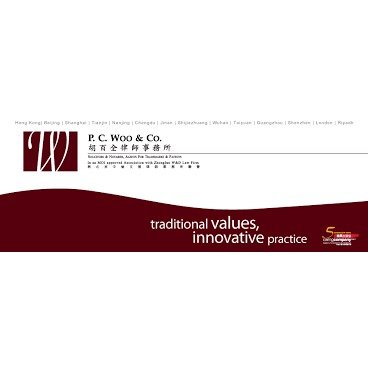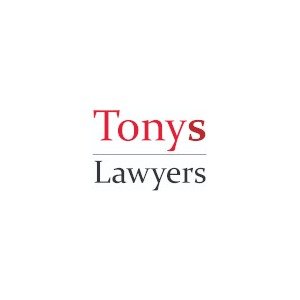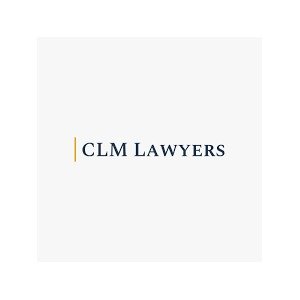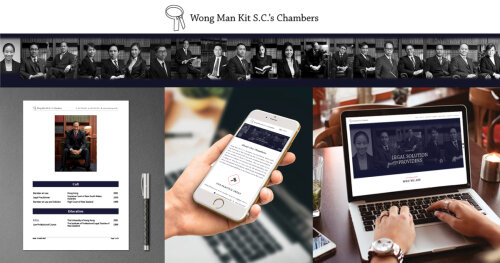Best Commercial Litigation Lawyers in Central
Share your needs with us, get contacted by law firms.
Free. Takes 2 min.
List of the best lawyers in Central, Hong Kong
About Commercial Litigation Law in Central, Hong Kong
Commercial litigation involves resolving disputes that arise out of business and commercial relationships. In Central, Hong Kong - the city’s financial heart - commercial litigation plays a pivotal role due to the area’s concentration of local and international businesses. Companies frequently go to court over contract disputes, shareholder disagreements, breaches of fiduciary duty, or regulatory compliance issues. The sophisticated legal framework in place in Central ensures business disputes are managed fairly, efficiently, and according to the law. Commercial litigation here may involve negotiation, mediation, arbitration, or full-scale court proceedings.
Why You May Need a Lawyer
Navigating commercial litigation in Central, Hong Kong can be complex, especially given the high stakes for businesses. Common scenarios where legal assistance is essential include:
- Disputes arising from commercial contracts or agreements
- Shareholder or partnership disagreements
- Allegations of breach of duty, negligence, or misrepresentation
- Recovering unpaid debts or enforcing financial obligations
- Intellectual property infringement affecting your business
- Fraud, misappropriation of assets, or other corporate misconduct
- Cross-border or international business disputes
- Regulatory investigations or compliance challenges
A lawyer experienced in commercial litigation can help assess your case, protect your interests, negotiate settlements, and represent you in court or arbitration if needed.
Local Laws Overview
Hong Kong maintains its own legal system based on the common law, separate from Mainland China. The rules and procedures relevant to commercial litigation in Central are largely set out in the High Court Ordinance and the Rules of the High Court. Key aspects include:
- Civil litigation, including commercial disputes, is normally handled by the High Court or District Court, depending on the claim value.
- Alternative dispute resolution methods such as mediation and arbitration are encouraged and often required before court proceedings can advance.
- There are strict rules on disclosure, evidence, and court procedure to ensure fairness.
- Remedies the court can grant include financial damages, injunctions, orders requiring the performance of contractual obligations, and more.
- The Limitation Ordinance sets out time limits for bringing business-related claims, commonly six years for most contract claims.
Legal proceedings and documents are typically in English, though Chinese may also be used. The robust legal framework in Central makes Hong Kong a trusted jurisdiction for resolving commercial disputes in the region.
Frequently Asked Questions
What is commercial litigation?
Commercial litigation covers legal disputes arising from business and commercial relationships, such as contract breaches, shareholder issues, or regulatory matters.
Which courts handle commercial cases in Central, Hong Kong?
Most commercial disputes are heard in the High Court or the District Court, depending on the amount of the claim.
Is mediation or arbitration required before going to court?
The courts often expect parties to attempt mediation or consider alternative dispute resolution before proceeding to trial.
How long does a commercial litigation case take?
The timeline can vary from several months to years, depending on the complexity of the case and whether it proceeds to full trial or is settled early.
Do I need a lawyer to file a commercial lawsuit?
While not legally required, it is strongly recommended to engage a lawyer due to the complexities involved in commercial litigation in Hong Kong.
What are typical costs involved?
Costs include court fees, lawyer fees, and sometimes expert witness fees. Some cases may qualify for cost recovery from the losing party.
Can foreign companies litigate in Hong Kong courts?
Yes, foreign companies can bring claims or be sued in Hong Kong courts, especially for disputes involving local contracts or business activities in Hong Kong.
What if the other party is overseas?
Hong Kong courts have procedures for serving legal documents and enforcing judgments internationally, especially with reciprocal enforcement arrangements in place.
Are there strict time limits for bringing a claim?
Yes, most claims must be filed within six years of the relevant event, as set out in the Limitation Ordinance. Some cases may have shorter or longer limits.
What documents should I prepare before seeing a lawyer?
Gather all relevant contracts, correspondence, invoices, company documents, and any evidence related to the dispute before consulting a lawyer.
Additional Resources
- Hong Kong Judiciary - Information on court processes and case tracking
- Hong Kong International Arbitration Centre (HKIAC) - Guidance on alternative dispute resolution
- Department of Justice - Legal policy and regulatory information
- The Law Society of Hong Kong - Find qualified solicitors
- Hong Kong Bar Association - Find barristers and get legal opinions
- Community Legal Information Centre (CLIC) - Free legal information for the public
Next Steps
If you are facing or anticipating a commercial dispute in Central, Hong Kong, consider taking the following steps:
- Assess the situation and gather all relevant documents and evidence
- Consult a legal professional with experience in commercial litigation
- Discuss your objectives, options, and budget with your lawyer
- Consider options for negotiation, mediation, or arbitration as alternatives to court
- If necessary, proceed with court action according to your lawyer’s advice
- Stay informed and comply with all deadlines and court directions
Early legal advice can help protect your interests and may resolve the dispute more quickly and efficiently. Seeking qualified guidance is key to navigating commercial litigation successfully in Central, Hong Kong.
Lawzana helps you find the best lawyers and law firms in Central through a curated and pre-screened list of qualified legal professionals. Our platform offers rankings and detailed profiles of attorneys and law firms, allowing you to compare based on practice areas, including Commercial Litigation, experience, and client feedback.
Each profile includes a description of the firm's areas of practice, client reviews, team members and partners, year of establishment, spoken languages, office locations, contact information, social media presence, and any published articles or resources. Most firms on our platform speak English and are experienced in both local and international legal matters.
Get a quote from top-rated law firms in Central, Hong Kong — quickly, securely, and without unnecessary hassle.
Disclaimer:
The information provided on this page is for general informational purposes only and does not constitute legal advice. While we strive to ensure the accuracy and relevance of the content, legal information may change over time, and interpretations of the law can vary. You should always consult with a qualified legal professional for advice specific to your situation.
We disclaim all liability for actions taken or not taken based on the content of this page. If you believe any information is incorrect or outdated, please contact us, and we will review and update it where appropriate.















